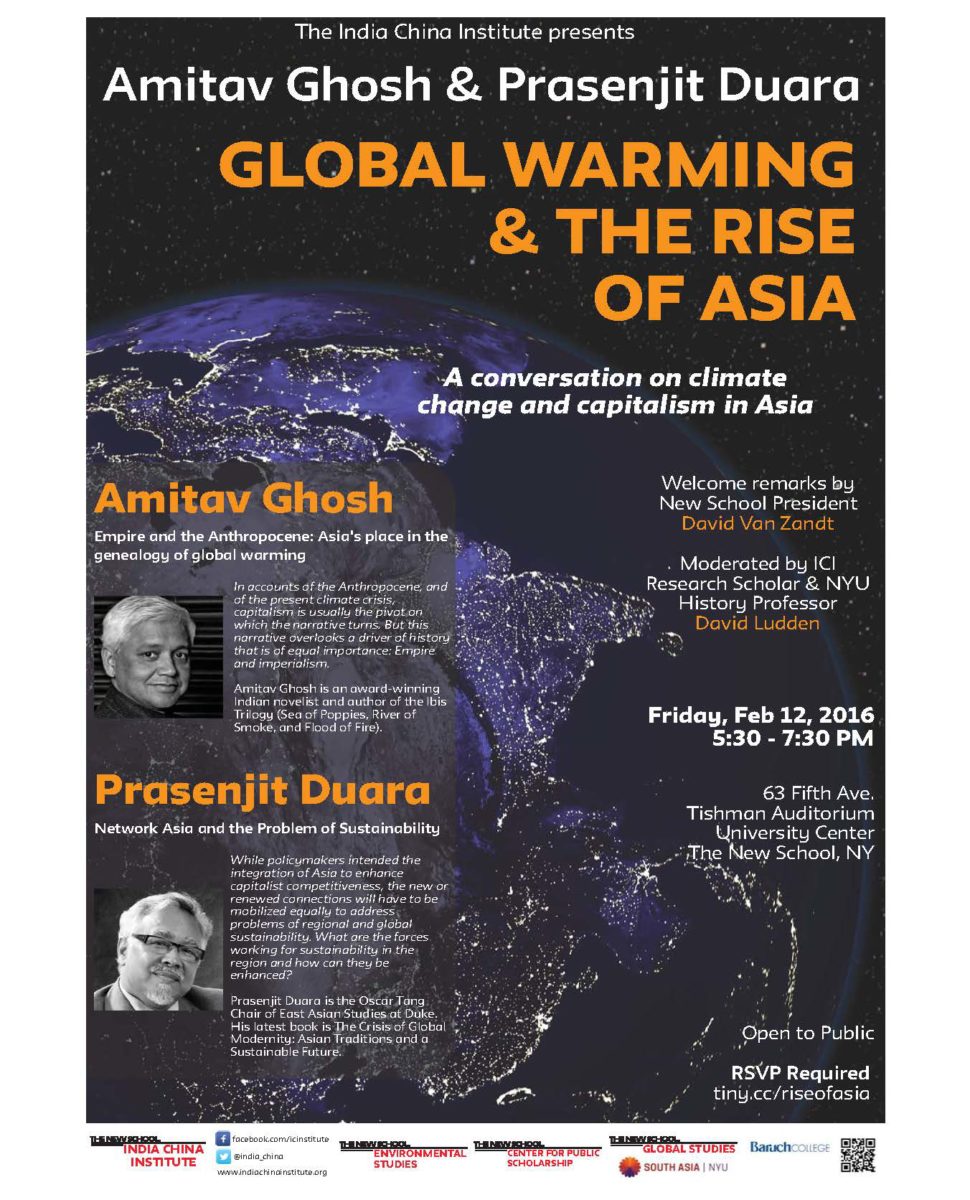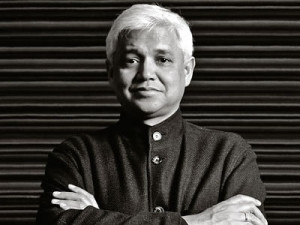
Global Warming and the Rise of Asia w/ Amitav Ghosh & Prasenjit Duara
February 12, 2016 , 5:30 pm – 7:30 pm

Global Warming & the Rise of Asia w/ Amitav Ghosh and Prasenjit Duara
The India China Institute engages two renowned intellectuals – Amitav Ghosh and Prasenjit Duara – in a conversation on climate change and capitalism in Asia.
Opening remarks by The New School President David van Zandt.
Conversation moderated by ICI Research Scholar and NYU History Professor David Ludden.
Friday, Feb 12th, 2016
5:30 -7:30 PM
63 Fifth Ave, Tishman Auditorium
University Center, The New School
Watch Livestream – starts at 5:30 pm EST
 Amitav Ghosh
Amitav Ghosh
Empire and the Anthropocene: Asia’s place in the genealogy of global warming
In accounts of the Anthropocene, and of the present climate crisis, capitalism is usually the pivot on which the narrative turns. But this narrative overlooks a driver of history that is of equal importance: Empire and imperialism. The relation between capitalism and empire is not, and has never been, a simple one: in relation to global warming the imperatives of capital and empire have often pushed in different directions, producing some unexpected and counter-intuitive results. To look at the climate crisis through the prism of Empire is to recognize that the continent of Asia is conceptually critical to every aspect of global warming: it’s causes, it’s philosophical and historical implications, and to the possibility of a global response to it.
Amitav Ghosh was born in Calcutta and grew up in India, Bangladesh and Sri Lanka. He is the author of one book of non-fiction, a collection of essays and eight novels, of which the most recent is Flood of Fire (Book 3 in the Ibis Trilogy). His books have won prizes in India, Europe and Myanmar and he has been awarded honorary degrees by the Sorbonne, Paris, and by Queens College, New York.
 Prasenjit Duara
Prasenjit Duara
Network Asia and the Problem of Sustainability
The December 2015 Climate Change Summit (COP21) was a landmark event for the global recognition of the planetary crisis of sustainability. But as is well known there are significant gaps between recognition and implementation of the largely voluntary commitments; the latter depends upon a range of monumental transformations not only in the market and technological management of carbon emissions but also notions of sovereignty that will have to allow for extra-national monitoring and changes in expectations and life-styles.
The same globalization process which has brought about this recognition had in the last decade also accelerated capitalist regionalization of the world, including the re-connection of Asian societies, especially around China, India and Southeast Asia, particularly ASEAN. While policy makers intended the integration of Asia to enhance capitalist competitiveness, the new or renewed connections will have to be mobilized equally to address problems of regional and global sustainability. What are the forces working for sustainability in the region and how can they be enhanced?
Prasenjit Duara is the Oscar Tang Chair of East Asian Studies at Duke University. Born and educated in India, he received his PhD in Chinese history from Harvard University. He was Professor of History and East Asian Studies at University of Chicago (1991-2008) and Raffles Professor and Director of Asia Research Institute at the National University of Singapore (2008-2015). His latest book is The Crisis of Global Modernity: Asian Traditions and a Sustainable Future (Cambridge 2014).
Co-sponsors: Global Studies and Environmental Studies at Eugene Lang College, The Center for Public Scholarship, South Asia – New York University, Baruch College – CUNY.
